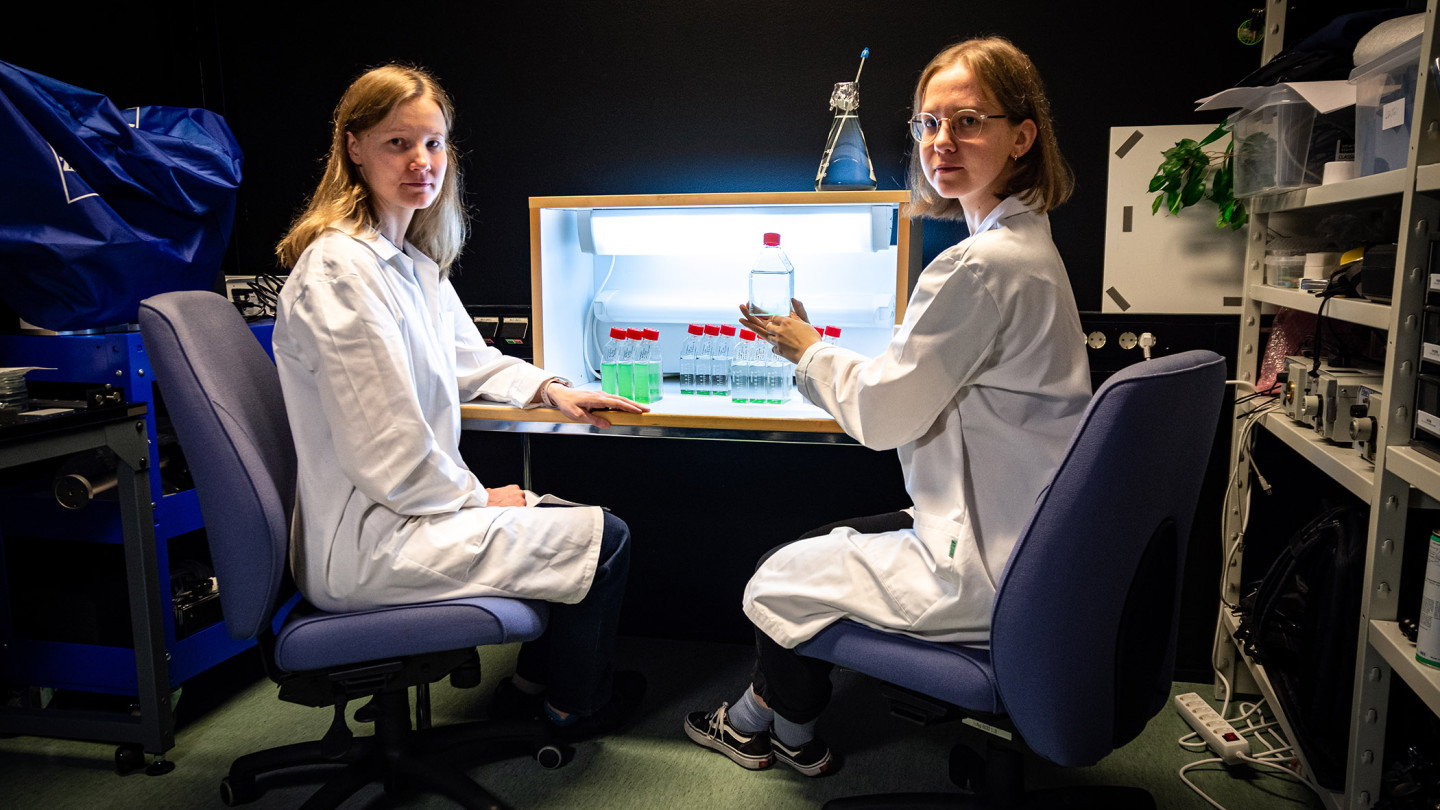Research project seeks solutions for profitable algae production – great potential for climate change mitigation

Large-scale algae cultivation has great potential for a wide range of applications, but currently faces technical difficulties that limit the spread of its economically profitable use for commodity products. One of the main challenges is the contamination of the cultivation process by other organisms that compete with the algae or can even eat the algae. In most severe cases, contamination can lead to the loss of entire cultivations.
The objective of the ROBA (Robust Algae Systems) project is to overcome such barriers and create economically feasible algal cultivation processes by utilizing, for example, advanced measurement technologies bioprocess engineering, computational methods, and synthetic biology.
The Spectral Imaging Laboratory of the University of Jyväskylä develops the use of spectral cameras to monitor the microalgae cultivation process, with the aim to detect any abnormalities in the algae culture early on.
– We use spectral cameras, because unlike normal cameras, they can also accurately elucidate changes in the colour of the algae. The cameras can also be positioned in a way that does not disturb the cultivation process, describes Postdoctoral Researcher Pauliina Salmi from the University of Jyväskylä.
For commercial use, the algal cultures would be grown in open ponds or photobioreactors designed to ensure high productivity of the algae, monitored by spectral cameras detecting any contamination as soon as it occurs.
Algae cultivation has untapped commercial potential
While growing, algae can utilize large quantities of carbon dioxide, so they have great potential in supporting climate change mitigation.
– In an optimal situation, algae can provide everything that fossil oil can, for example, fuels and bioplastics. Additionally, algae also have a high nutritional value. This could be considered a double win, as algae utilize carbon dioxide, Salmi describes.
Project partner Neste is aiming to expand the range of renewable raw materials to support future growth in renewable fuel and chemical production.
- Microalgae are one of the potential renewable and scalable future raw materials that Neste is developing. We aim to expand our renewable raw material pool and look for all possible solutions to reduce emissions. Activities in the ROBA project will contribute to these targets by focusing on a concept for refinery carbon dioxide capture with microalgae and by developing monitoring methods that could be utilized in large-scale algae cultivation, explains Jason Michael Blake, Vice President of Innovation, Business Platform Aviation Feedstock, at Neste.
Neste is aiming for carbon neutral production by 2035.
More about the project
ROBA’s total budget is 1.4 M€ and its main funder is Business Finland. In addition to VTT, University of Jyväskylä, Business Finland and Neste, the following stakeholders are participating in the project: Agri-Biotech, Aircohol, Owatec, Pixact, Soilfood, Specim and Timegate Instruments. The partners are supporting the project with valuable expertise and insight into measurement technologies in bioprocesses, photobioreactor configurations, products from algae biomass and process equipment. ROBA is one of the ecosystem projects of Neste Veturi.
More information
Pauliina Salmi
Postdoctoral Researcher, University of Jyväskylä, pauliina.u.m.salmi@jyu.fi
+358 50 528 7911
Mervi Toivari
Principal Scientist, VTT
mervi.toivari@vtt.fi
+358 40 708 1039
